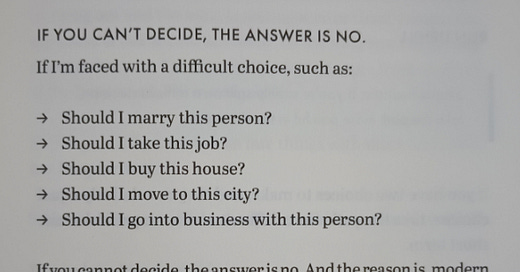Is real estate better than treasuries?
Why "investing in treasuries" is an overused yet helpful real estate comp
Welcome to the 109 subscribers and 6 new premium subscribers who joined since the last issue!
Last premium post: Hidden risks of tax benefits in syndications
Last free posts: top 15 syndication mistakes and LP Investing Digest #8
Announcements:
🎁 New Year’s GP Special: if you’re a GP and would like to gift 3 months of premium articles to your LPs for the holidays at no cost to both of you, please reply to this email. If you’re an LP and want to forward this email to your GP, even better!
🎉 December promotion: earn a free month of premium for every friend you refer to this blog. Click the button below to get started. Many people just took this link and sent it to a group (e.g. Facebook, Whatsapp, etc) that they’re on with other likeminded investors.
Why "investing in treasuries" is an overused yet helpful real estate comp
You’ll hear many people (TV, Twitter, YouTube, etc) say things similar to “why would I buy a 4% cap if treasuries are 5%?!”
Today I’d like to build an investments framework and explain that, while these cap rate to treasury comparisons are usually misinformed, treasuries do carry a significance in the investment landscape that shouldn’t be ignored.
Here’s our agenda for today:
Three simple investment rules
Main differences between real estate and treasuries
Expected values applied to real estate investing
Ok fine, but “why would I buy a 4% cap if treasuries are 5%”
First, let’s begin by painting the landscape of investments in general. As a reminder, everything we speak about are just my thoughts and are not investment advice.
Real estate’s upside is great, but it is somewhat capped in probability, so saying no to an investment is critical when you think that the downside risk on your investment is more than you can bear. Expecting real estate to provide you venture capital type returns is (in probability) a really bad idea. Similarly, going into a VC investment thinking it's safe is a bad idea. Real estate returns aren’t literally capped (since equity returns don’t have a real ceiling), but rather "capped in probability" from the investor’s perspective. We’ll touch more on this soon.
Said another way, if someone is investing in a stock index expecting to make a consistent 20% per year, I think we would all agree that doesn’t make sense (stock market returns tend to be in the 7-10% range).
Can someone make 20% in a given year? Sure... but "in probability" stock market index upside is capped in the same way that I think real estate upside should be thought of. Doubling your money every 5 years (15% IRR) is a phenomenal outcome in real estate ... can you do better on a given deal? Yes, but did you get lucky due to variables that were outside of your control (and outside the true investment thesis)? I would argue that in most cases, the answer to this is also yes.
In my mind, “success” as an investor is entering an investment (regardless of its risk level) with a good understanding of the risks involved. The opposite is also true - I have a really hard time with people investing blindly, which is why you shouldn’t be investing $5,000 into syndications.
1. Three simple investment rules
If you don’t have time (or curiosity) to learn to invest, don’t invest
If you’re not willing to put in the effort to look at many deals to invest in only one (through proper due diligence), don’t invest
For more on an investor’s mindset, see here.
Finally, from a book on Naval’s thoughts (this Twitter thread is a great free summary): if you can’t decide on investing, the answer is no .. plain and simple.
From my work, I’ve come to realize that many take on risk with a return profile that is subpar relative to the risk that they are taking on. Let me provide an example.





